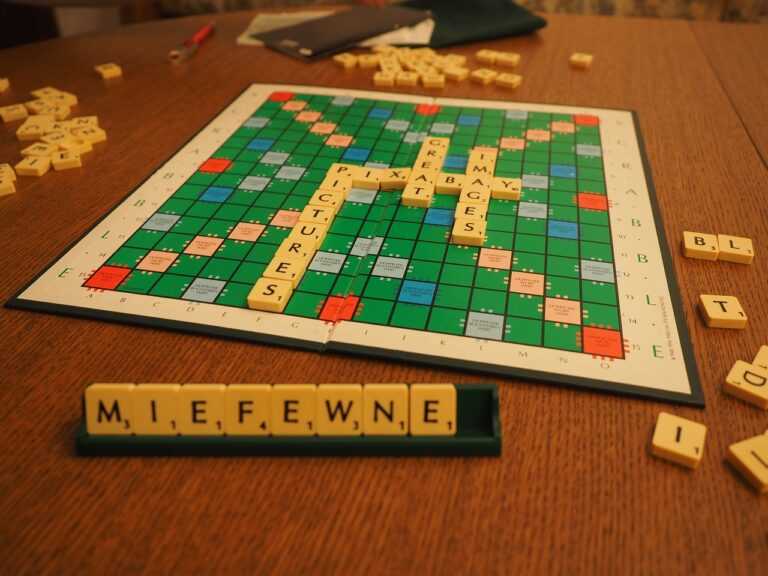Navigating the in-game economy can feel like a daunting task, especially when every decision impacts your gameplay experience. I’ve spent countless hours figuring out the best strategies to spend, save, and ultimately dominate in various gaming worlds.
Whether you’re a seasoned player or just starting out, mastering the art of managing your resources can give you a significant edge.
Overview of In-Game Economy
In-game economies consist of resources, currencies, and items that players use while engaging in gameplay. Each game features distinct economic systems, often mimicking real-world principles. Understanding these systems is crucial for effective resource management to enhance overall performance.
Key Components
- Currency Types: Games typically include various currencies, such as in-game gold, gems, or credits, each serving different purposes. Players need to recognize which currency to prioritize for specific purchases.
- Resource Availability: Resources like crafting materials or consumables are usually finite. Monitoring their availability allows players to plan strategic spending and avoid unnecessary waste.
- Market Dynamics: Many games feature player-driven markets or NPC shops. Prices fluctuate based on demand and supply, influencing players’ buying and selling decisions.
- Upgrades and Progression: Investing in upgrades can significantly impact gameplay. It’s advisable to evaluate whether expenditure enhances performance or merely cosmetic aspects.
- Time vs. Money: Players often face choices between spending time grinding for resources or investing real money. Assessing personal priorities aids in optimizing gameplay experience.
Economic Strategies
- Budgeting Resources: Setting limits for spending may prevent impulsive purchases. I favor categorizing resources based on needs, distinguishing between essentials and luxuries.
- Utilizing Discounts: Many games offer special promotions or discounts. Taking advantage of these deals can lead to significant savings.
- Diversifying Investments: Spreading resources across different areas—such as gear, skills, and abilities—can improve overall gameplay effectiveness rather than focusing solely on one aspect.
- Monitoring Trends: Observing the in-game economy’s shifts offers insights into future opportunities. Players can predict when to buy or sell based on established patterns.
- Participating in Events: Limited-time events often present unique opportunities for earning or spending resources. Engaging in these events can lead to substantial benefits.
Understanding the intricacies of in-game economies equips me with the tools to navigate resource management effectively. Prioritizing informed decision-making ensures optimal performance in any gaming environment.
Spending Wisely in Games
Effective spending in games enhances both enjoyment and strategy. Understanding various currency types and prioritizing purchases can significantly impact gameplay.
Understanding Currency Types
Different games feature distinct currency types, and knowing their function is crucial. Common categories include:
- Premium Currency: Often purchasable with real money, this currency provides access to exclusive items or boosts, offering players an edge.
- Standard Currency: Usually earned through gameplay, standard currency enables typical purchases, like character upgrades and item enhancements.
- Event Currency: This currency appears during limited-time events, rewarding players for participation and allowing unique acquisitions.
- Crafting Materials: Essential for creating powerful gear or consumables, crafting materials should be conserved and spent wisely.
Recognizing these types aids in making informed decisions and enhances overall resource management.
Prioritizing Purchases
Focusing on strategic purchases maximizes benefits. Key considerations should include:
- Essential Upgrades: Seek upgrades that substantially improve gameplay or character performance first, such as weapon enhancements or skills.
- Limited-Time Offers: Take advantage of discounts or special deals that appear periodically, as these can significantly reduce costs on critical items.
- Utility Items: Invest in items that enhance gameplay experience, like health potions or revival items, ensuring survival during challenging missions.
- Long-Term Investments: Prioritize purchases that may yield benefits over time, including items that assist in grinding or resource generation.
By making calculated choices on what to buy first, players can enhance their in-game performance and enjoyment.
Saving Strategies for Gamers
Saving resources is crucial for maximizing in-game potential. Implementing effective strategies ensures a balanced economy, enabling players to thrive.
Building a Budget
Establishing a budget helps control spending and prioritizes necessary resources. I recommend listing all income sources, such as rewards and bonuses, along with expenses like upgrades and consumables.
Track these on paper or a digital tool for easy reference. Set predefined limits on categories, focusing on critical items first and adjusting as needed. Consistent monitoring prevents impulsive decisions, ensuring that I allocate resources wisely.
Timing Your Purchases
Timing purchases enhances value and efficiency. I observe in-game events, seasonal sales, and limited-time offers to snag the best deals. Waiting for discounts on essential items often yields significant savings.
Additionally, I consider when to buy upgrades, opting for purchases after leveling or unlocking new features for maximum benefits. Following market trends and community discussions can provide insights on optimal buying times, helping me decide the best moments to invest.
Dominating the In-Game Market
Mastering the in-game market can enhance resource management, allowing players to gain significant advantages in gameplay. Below are key strategies for trading and investing in long-term assets.
Trading and Bartering
Trading is vital in many games, enabling players to exchange items and resources for mutual benefit. First, identify valuable items in your inventory; items in demand can yield better trades. Second, engage with other players actively on forums or in-game chat, as this increases trading opportunities.
Third, analyze market trends regularly; fluctuations in item prices often guide when to trade. Fourth, consider bartering instead of direct currency exchanges; sometimes, items yield higher value than gold or other currencies. Finally, track your trades; recording successful exchanges can inform future decisions and improve negotiation skills.
Investing in Long-Term Assets
Investing in long-term assets significantly impacts a player’s overall success in-game. First, prioritize upgrades that enhance gameplay, such as equipment or character enhancements that improve capabilities.
Second, focus on acquiring rare items with potential appreciation; these items could be worth far more in future gameplay. Third, diversify investments by balancing between immediate-use items and long-term collectibles, which can help mitigate risks associated with economic fluctuations.
Fourth, participate in community events or persistent missions to earn exclusive rewards, reinforcing long-term asset growth. Lastly, keep an eye on changes in the game dynamics; shifts can present new investment opportunities or render certain assets less valuable.













































































































































































































































































































































































































































































































































































































































































































































































































































































































































































































































































































































































































































































































































































































































































































































































































































































































































































































































































































































































































































































 Mistyck Winstonolie, the visionary founder of Power Gamer Strategy Hub, has carved a dynamic niche in the gaming world by blending passion with purpose. Under her leadership, the platform has become a vital source for gamers seeking cutting-edge news, expert strategies, esports insights, and thoughtful reviews. Driven by a deep understanding of both casual and competitive gaming cultures, Mistyck continues to empower players and fans alike through engaging content that informs, inspires, and elevates the global gaming experience.
Mistyck Winstonolie, the visionary founder of Power Gamer Strategy Hub, has carved a dynamic niche in the gaming world by blending passion with purpose. Under her leadership, the platform has become a vital source for gamers seeking cutting-edge news, expert strategies, esports insights, and thoughtful reviews. Driven by a deep understanding of both casual and competitive gaming cultures, Mistyck continues to empower players and fans alike through engaging content that informs, inspires, and elevates the global gaming experience.